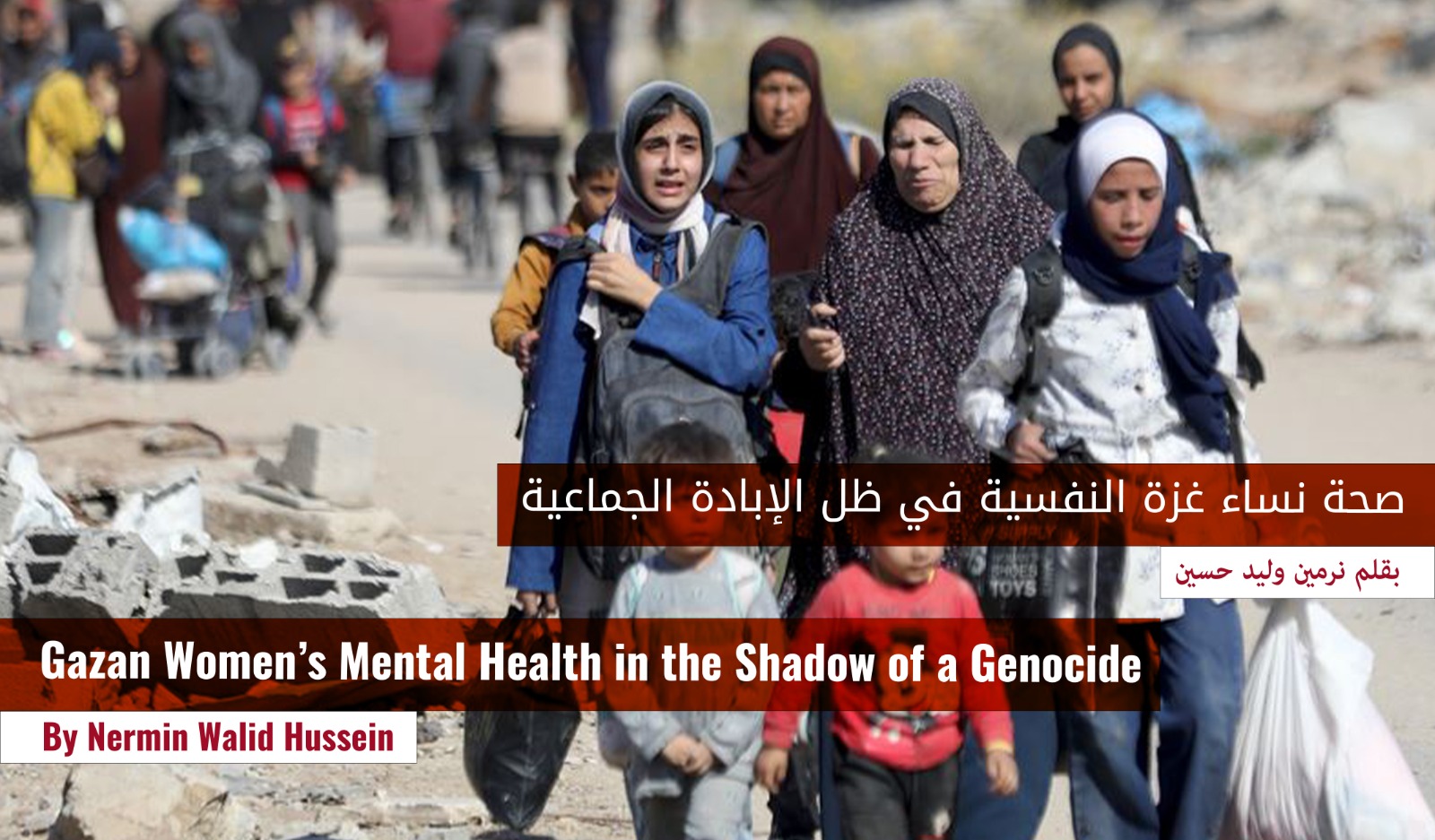By Nermin Walid Hussein
RSC Program: Women and Youth Empowerment/ Question of Palestine
As we reflect on World Mental Health Day, observed globally on October 10, it is crucial to recognize its significance for those suffering in conflict zones. In fact, wars inflict wounds that go far beyond physical injuries, leaving enduring scars on mental health that can last a lifetime. Since the outbreak of the war on Gaza in 2023, over 67,000 Palestinians have been killed, with women and children constituting 70% of the victims. At least 20,000 children are among the dead, with one child killed every hour for the past 24 months. However, the true number is unknown, and it is likely to be much higher, because the official death data do not include those who perished under rubble or are missing. Nevertheless, the emotional and psychological toll of this conflict extends far beyond physical injuries, manifesting in a mental health crisis of alarming proportions, compounded by the widespread and unprecedented destruction of houses, infrastructures, collapse of services, loss of food and water resources.
Gazan women bear a disproportionate burden. Their mental health has been severely impacted, and studies show that over the 75% of them suffers from chronic anxiety and depression. They often report feeling scared and exhausted, with limited access to mental health support, coping with psychological distress alone and in isolation. Women’s sense of stability has been further eroded by displacement and overcrowded shelters. The lack of privacy, basic necessities, and safety in these conditions has contributed to their heightened emotional distress. Additionally, their caregiving responsibilities have increased. They report sacrificing their own health to care for their families and often they are the primary or sole caregivers for their children. Hunger, coupled with the inability to provide food for their loved ones, creates an emotional burden that is difficult to bear. Moreover, the constant exposure to violence and loss has exacerbated their trauma, categorized as Complex Continuous Traumatic Stress (CCTS) due to the chronic, unrelenting nature of it.
The war has also severely disrupted access to essential reproductive healthcare services. The simplest necessities like menstrual hygiene products, are no longer readily available, highlighting the catastrophic nature of the humanitarian situation. Women often resort to makeshift solutions and face severe infections due to lack of hygiene or simply lack of clean water. With more than the 85% of healthcare facilities destroyed, women have been also forced to giving birth in overcrowded shelters, often lacking proper medical care. Many have been discharged just hours after delivery, leading to serious complications. Reports indicate significant increase in miscarriages (about the 300%) linked to trauma and inadequate care, and birth losses driven by stress, malnutrition, lack of medical assistance and essential medical supplies. The inability to access fundamental health rights not only challenges individual wellbeing but threatens the rights of an entire population.
The systematic targeting of reproductive autonomy as well as the denial of essential reproductive healthcare can be classified as reproductive violence under international law. From the bombing of maternity hospitals and fertility clinics to the forced births in tents and surgeries without anesthesia, reproductive violence is being used as a weapon of domination and erasure and the International Criminal Court (ICC) should recognize and prosecute these acts as forms of persecution.
Despite these overwhelming obstacles, women in Gaza display incredible resilience, supporting their families and communities through a combination of social and community-based strategies, like relying on strong family and community networks, engaging in religious and spiritual practices, even in the direst circumstances. Reports from the ground reveal adaptive coping methods, including stories of mothers organizing educational activities for their children or working within community networks to provide mental health support. Some women also use formal methods like peer support groups, professional psychosocial support, and culturally adapted interventions, creating safe spaces for healing anxiety and fears. This resilience is a testament to their strength and the critical role they play in rebuilding society. In this way they literally embody the Palestinian ethos of sumud (steadfastness) and contribute to rebuild a sense of normalcy amidst chaos.
As we are marking the 25th Anniversary of United Nations Security Council Resolution 1325 on Women, Peace, and Security to uplift the voices and leadership of Arab women in peace-building efforts, we must recognize that sustainable peace cannot be achieved without addressing the unique challenges faced by women in conflict zones. Gazan women have demonstrated remarkable strength in the face of adversity, often stepping into leadership roles within their communities.
In light of the recent political steps towards peace in Gaza, we must uplift and support Gazan women’s voice. Promoting the rights of Gazan women goes beyond mere advocacy; it involves actively creating spaces where their voices are heard and respected, giving them opportunities to recover. This means investing in mental health resources that are accessible and culturally sensitive, empowering women to seek the support they need to heal and thrive. When women’s mental health is prioritized, they are better equipped to support their families and communities, laying the groundwork for a more peaceful and just society.



